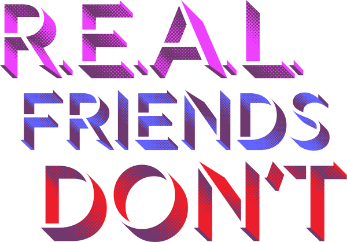Public art installations unveiled in Mesa, AZ
The McCain Institute at Arizona State University (ASU) unveiled two public art installations at the ASU Media and Immersive Experience (MIX) Center. These works of art are part of the McCain Institute’s R.E.A.L. Friends Don’t campaign, aimed at raising awareness, educating caregivers and teens about online safety, and protecting children from harmful content, grooming, or online exploitation.
The installations were designed by local artists at I AM Undefined Art and Xico, Inc. and guided by young people at the Boys & Girls Club – Grant Woods Mesa Branch and one•n•ten. The artwork intends to provoke thought and foster dialogue among community members about safety in the digital world.
About the project
“The McCain Institute is proud to be part of the ASU community and deeply values our Arizona-based partners who have worked with us on this meaningful endeavor,” said McCain Institute Executive Director Dr. Evelyn Farkas. “Public art serves as a critical stimulus for the challenging, but necessary, conversations we need to have about the online safety of our children.”
“At Boys & Girls Clubs of Valley, we prioritize promoting the lifelong significance of making informed choices related to health and social concerns,” said Vice President of External Affairs & Business Partnerships for Boys & Girls Clubs of the Valley (BGCAZ) Josh Stine. “The mission of R.E.A.L Friends Don’t, which seeks to raise awareness among teenagers about online exploitation, aligns with this focus and delivers a crucial message to our young members, particularly considering the growing prevalence of media and online exposure.”
“When Kelsey asked me to be a part of this project, I got chills. It was important to me to include youth voices in this piece by drawing and painting,” said I AM Undefined Artist Tiesha Harrison. “A piece of art from every youth who participated is included, representing everything from safety first to raising the topic to voices of youth. It was the most rewarding experience.”
Recognizing that the demand for accurate, actionable information about online safety is high, the McCain Institute created R.E.A.L. Friends Don’t and employs an integrated suite of activities to reach those most at risk of exploitation, ranging from an online resource hub to billboards to influencer-driven social media campaigns, and most recently public art.
Artwork Symbolism
Restoring Our Energy
Xico, Inc.
2023
Restoring our Energy is an honest and inspiring representation of the digital world that today’s youth are growing up in.
Guided by the teens at one•n•ten, the symbolism within the artwork represents their desires to turn negatives into positives, break free from toxic thought processes, and be open to growth. The young figure mesmerized by social media is representative of many teenagers, while the book and eyes represent knowledge and the desire for education and mentorship. Surrounded by color and movement, the phone reminds us that the world is at our fingertips.
The mountains, sun, and music notes represent forms of self-care and ways in which the teens choose to recharge their social battery by listening to music and spending time in nature. Beauty and healing are denoted through the aloe plant and roses, while the stained-glass motif and vines exemplify restoration and the beauty that can be formed from something broken.
The stairway demonstrates consistent growth and support, and the mural is brought together by the wings of freedom and a guiding compass for direction and hope.
Restoring our Energy was co-designed by lead artists Diana Calderon and Martin Moreno, with youth participants from one•n•ten.
I AM ‘Online Safety Awesome’
I AM Undefined Art – Tiesha Harrison
2023
Sun we look forward to brighter days when our youth are safe from exploitation and human trafficking.
Safety First The campaign is abuse online safety and what to look out for when interacting online.
Megaphone Empowering teens
Shirt Symbols of Arizona: saguaro cactus, Engelmann’s hedgehog cactus, prickly pear, and cactus wren.
Lightbulb ‘R’ for realize predators pretend to be someone their not
Books ‘E’ for educate youth on who is most at risk
Question Mark ‘A’ for ask questions! If it does not feel right, follow your intuition and let an adult know
I AM ‘Online Safety Awesome’ was designed by Tiesha Harrison, with youth participants from Boys and Girls Club – Grant Woods Branch & Teen Center.
Media Coverage
New art aims to start conversation about online teen exploitation — ABC 15 – Arizona
Murals unveiling at MIX Center project an important message — ASU News
Lawmakers, state and local, renew push to protect kids while online — FOX 10 – Arizona
3 artists works at MIX address online safety — Mesa Tribune
About the McCain Institute at Arizona State University
The McCain Institute is a nonpartisan organization inspired by Senator John McCain and his family’s dedication to public service. We are part of Arizona State University and based in Washington, D.C. Our programs advance democracy and human rights, empower character-driven leaders, combat human trafficking, and prevent targeted violence. Our unique power to convene leaders across the global political spectrum enables us to make a real impact on the world’s most pressing challenges. Our goal is action, not talk, and like Senator McCain, we are fighting to create a free, safe, and just world for all.
About Arizona State University
Arizona State University has developed a new model for the American research university, creating an institution that is committed to access, excellence and impact. ASU measures itself by those it includes, not by those it excludes. As the prototype for a New American University, ASU pursues research that contributes to the public good, and ASU assumes major responsibility for the economic, social and cultural vitality of the communities that surround it.
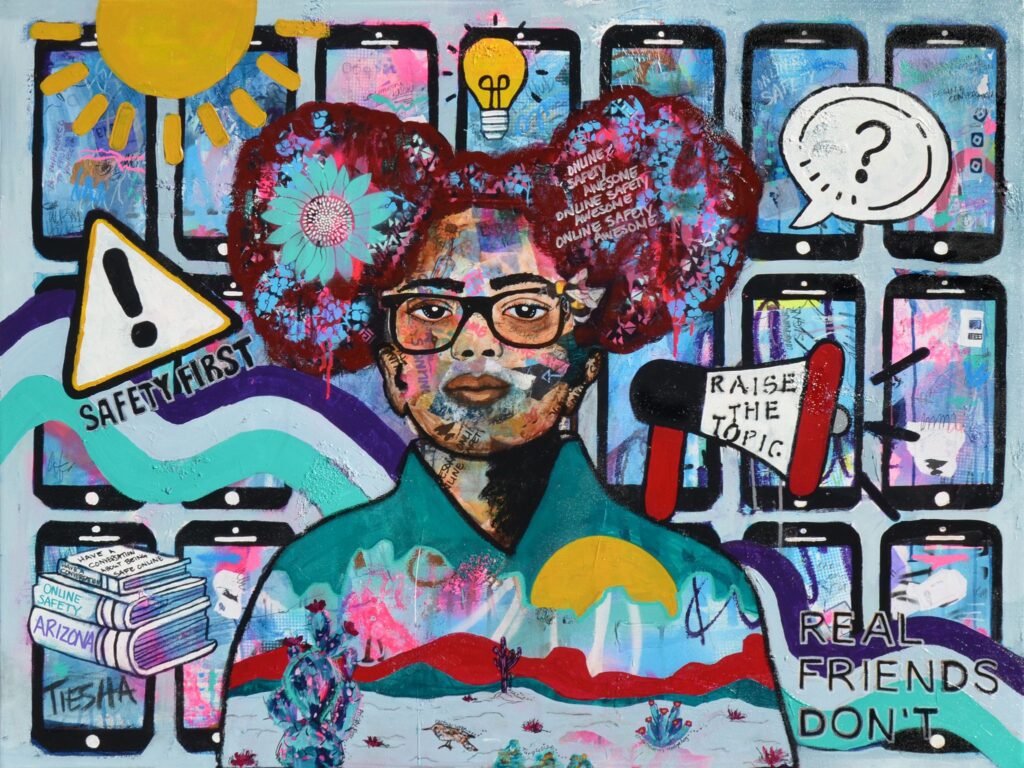
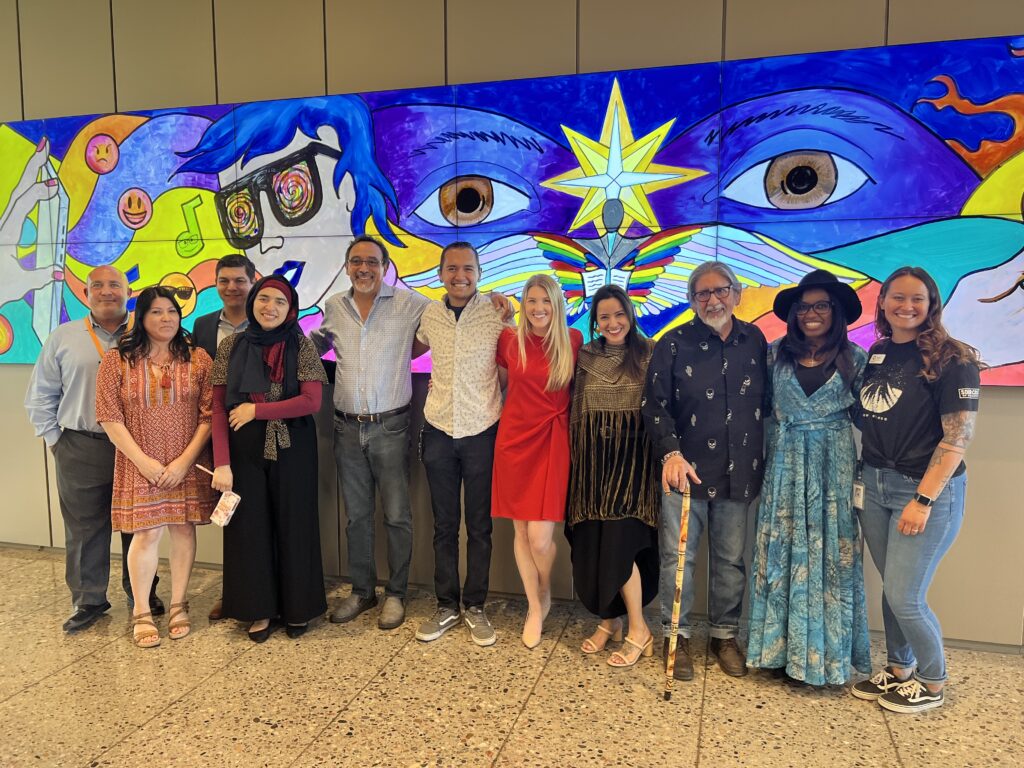
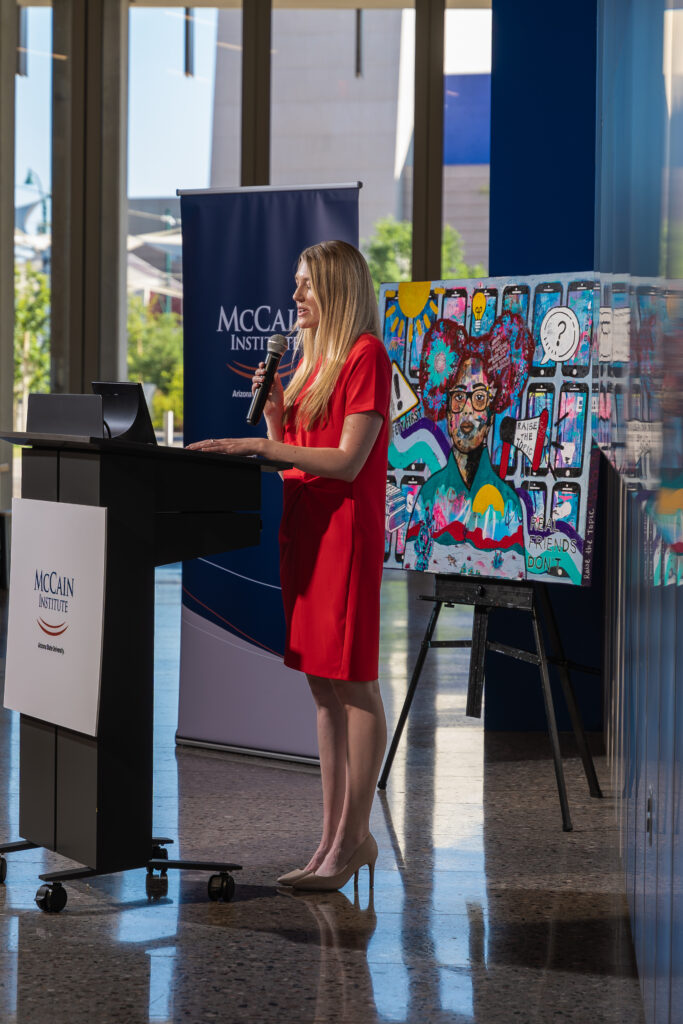
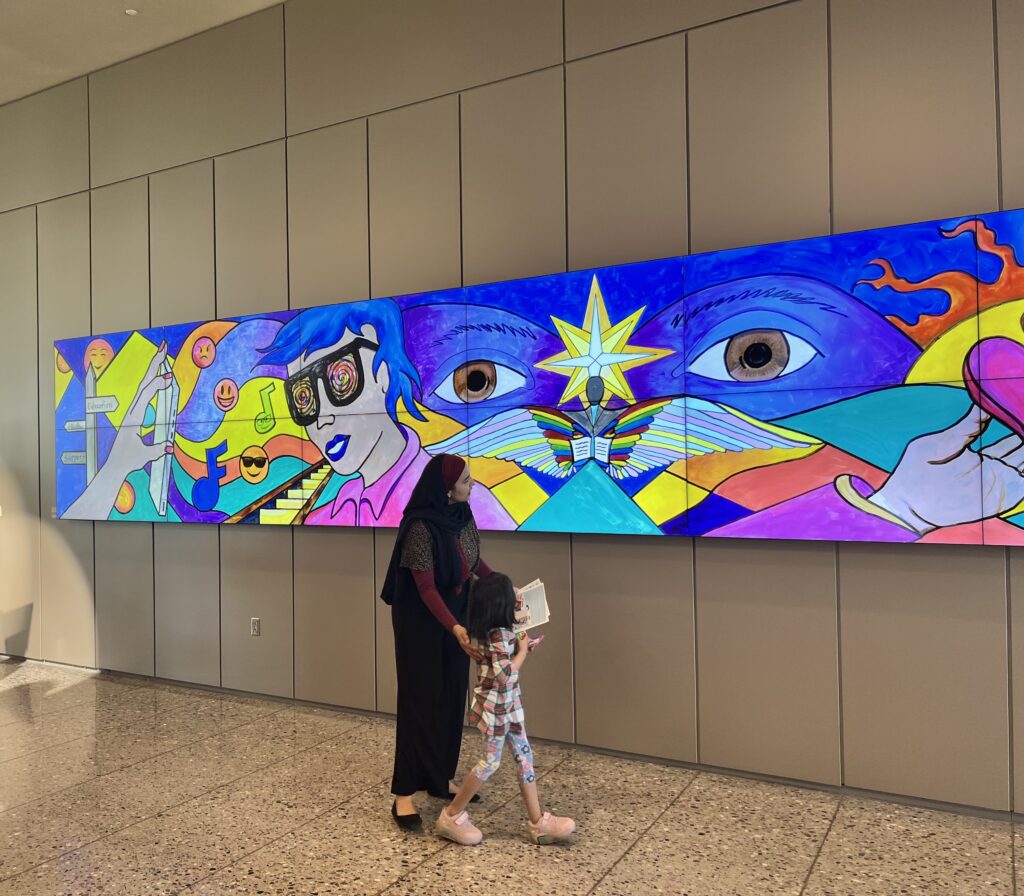
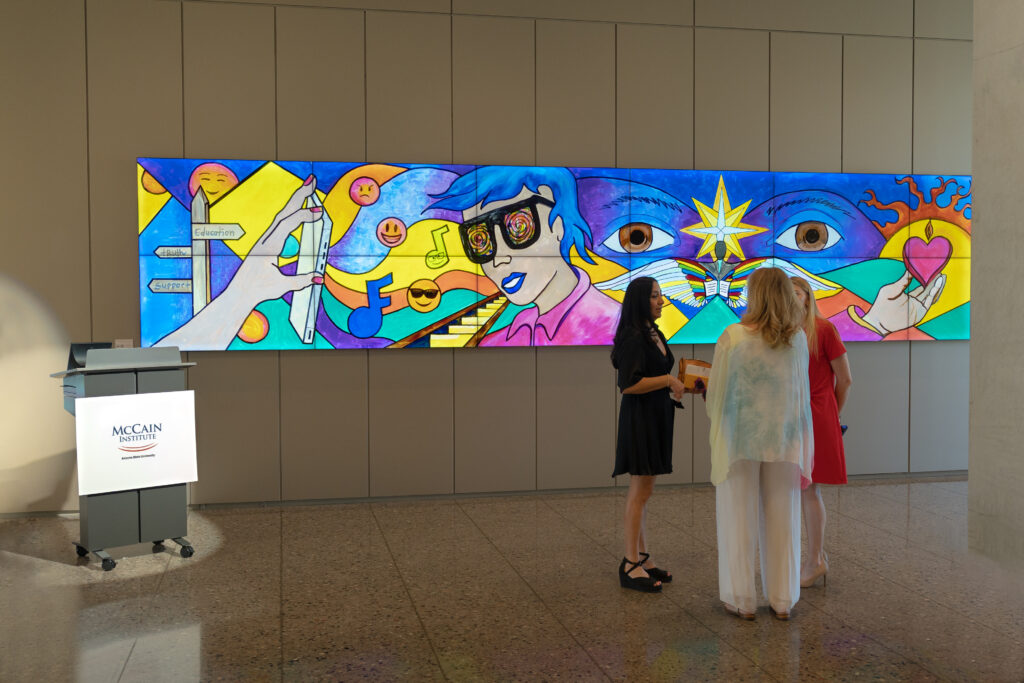
Feeling inspired?
If you’d like to paint a mural in your city, contact us for more information.
